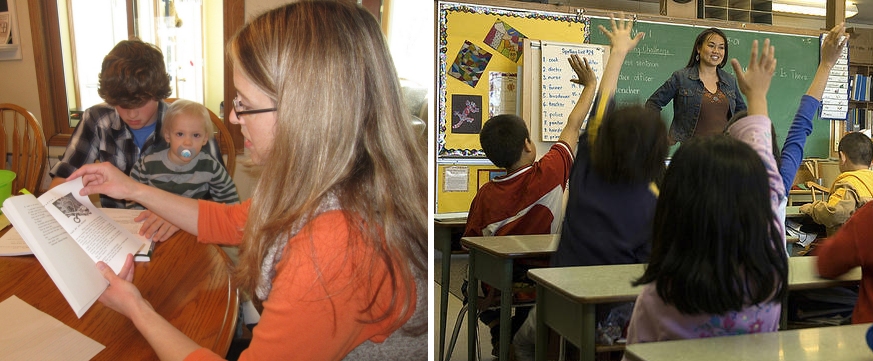
How does homeschooling compare to conventional schooling? I have read lots of different opinions written by educators, parents, and politicians. However, I haven’t read a lot from students. This is somewhat understandable, since many homeschooled students never experience a conventional school, and the vast majority of conventionally-schooled students never experience a home school. However, I recently read a paper published in the journal Cogent Education that summarized the views of 40 Australian students who had experienced both forms of education. Their views were quite enlightening.
Many of them valued the flexibility that home education gave them. They could choose to focus more on the areas that interested them. This was especially true if their parents took a less-structured approach to their curriculum. They also valued the freedom that comes with homeschooling. They could choose the times they studied, played, slept, etc. This was especially helpful when they were doing long-term projects. In contrast, they found the conventional school they attended to be limiting because of time tables, commutes, and the necessary fact that the classes were geared to teach students of average ability. This wasn’t true of all the students, however. Some found the structure and regulation of a conventional school to be a nice change of pace.
What I found more fascinating were the cultural differences the students noticed between home and conventional schools. For example, based on his interviews with the students, the author notes:
The most common cultural feature of home education has been family recognition that each child is unique and programmes require individual tailoring.
He discusses how the students saw that play out in homeschooling. He then discusses what the students thought about how that works in conventional schools:
In conventional schools there was written and verbal recognition that each child was unique and needed personalised learning programmes, however, delivering this type of approach was restricted by the structures of conventional schools.
This is something I have always stressed in my talks with homeschoolers. One very important benefit that homeschooling gives you is the ability to tailor your child’s education to meet his or her specific needs.
Here’s another interesting observation the author makes based on his interviews:
A subtle cultural aspect of home education was the high level of self-esteem students experienced at home and which was more about their state of being than a measurable quantity.
How did going to conventional schools affect self-esteem? According to the author:
In addition, a number of students felt their self-esteem was challenged when they entered conventional schools.
I am not at all surprised by this. In conventional schools, the student is constantly judged, and the student’s worth generally gets boiled down to a list of grades and achievements. That can’t be good for self-esteem, even when that list is all A’s. After all, a person should be valued for more than his or her accomplishments. In homeschool, students are judged, but they are also strongly encouraged, and they understand that their worth goes far beyond what they manage to accomplish in school.
I want to finish with two of the author’s most important observations. He discusses how the students compare learning in a home school to learning in a conventional school. He lists many of the positives and negatives given by the students, but here is what he concludes:
In spite of this, all students claimed they learnt more at home than they did at school. (emphasis mine)
Now remember, there were only 40 students in the study. Nevertheless, they expressed a wide variety of views when comparing their homeschooling and conventional schooling experiences. Some liked homeschooling more when it came to certain issues, while others liked conventional school more on those same issues. Nevertheless, they all agreed that they learned more when they were in home school. That’s very significant.
The other very important observation made by the author is worth quoting at length:
Although opportunities for socialisation has been the most frequent question thrown at home educators these students explained that, although they may have fewer friends at home, these friends were more likely to share common interests and usually came from a wide age range of people. There was an element of choice in their home social connections. They noted that school friendships were usually limited to same aged peers and often with similar ability, a situation these students found artificial and far from ideal. (emphasis mine)
I have said this over and over again when it comes to the “socialization” issue. In my not-so-humble opinion, school is the most artificial social situation on the planet (except, perhaps, for jail). Thus, it is probably the worst place to learn socialization.
If I had to sum up my reasons for being a homeschooling advocate in nutshell, it would be these last two points. Students simply learn more at home, and their social interactions are more realistic. This allows homeschooling (in the vast majority of cases) to produce better educated, well-adjusted adults.
